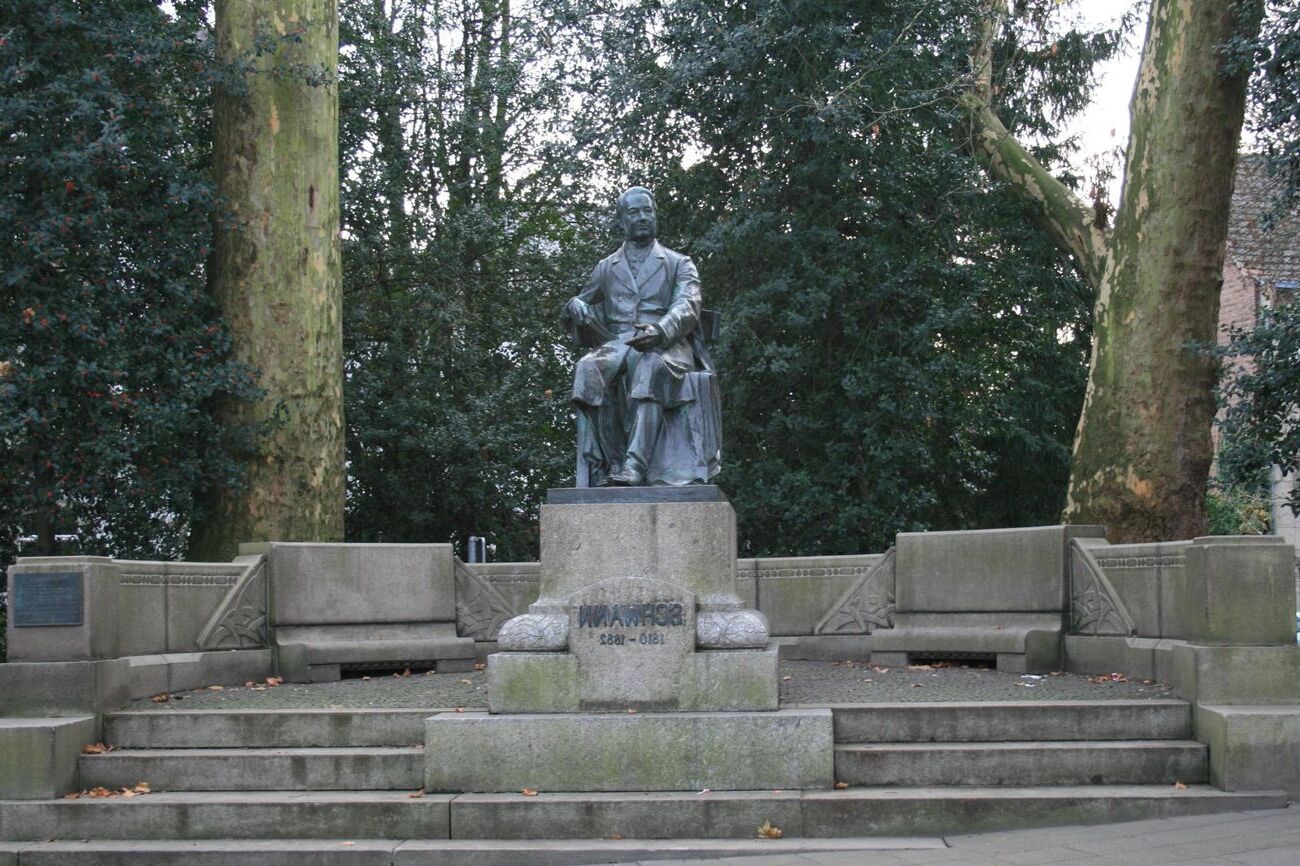
Who was Theodor Schwann? Theodor Schwann, a name you might not hear every day, played a huge role in science. He is best known for co-founding the cell theory, which states that all living things are made up of cells. Born in Germany in 1810, Schwann's work laid the groundwork for modern biology. His discoveries didn't stop there; he also identified pepsin, an enzyme crucial for digestion, and coined the term "metabolism." Schwann's curiosity and dedication to science made him a pioneer in understanding life at the cellular level. Want to know more? Here are 31 fascinating facts about this remarkable scientist.
Early Life and Education
Theodor Schwann, a pioneering figure in biology, had a fascinating journey from his early years to his groundbreaking discoveries.
- Born on December 7, 1810, in Neuss, Germany, Schwann was the fourth child in his family.
- His father, Leonard Schwann, was a goldsmith and later a printer, which influenced young Theodor's meticulous nature.
- Schwann attended the Jesuit College in Cologne, where he showed an early interest in science.
- He later studied medicine at the University of Bonn, where he met Johannes Müller, a prominent physiologist who became his mentor.
- Schwann completed his medical degree at the University of Berlin in 1834, focusing on anatomy and physiology.
Major Contributions to Cell Theory
Schwann's work in cell theory laid the foundation for modern biology. Here are some key facts about his contributions.
- In 1839, Schwann published "Microscopical Researches into the Accordance in the Structure and Growth of Animals and Plants," a seminal work in cell theory.
- He proposed that all living things are composed of cells, a concept that revolutionized biological sciences.
- Schwann discovered that cells are the basic unit of life, which led to the formulation of the cell theory.
- He identified the nucleus as a crucial component of cells, emphasizing its role in cell function and reproduction.
- Schwann's work complemented that of Matthias Schleiden, who studied plant cells, leading to the unified cell theory.
Discoveries in Physiology
Schwann's curiosity extended beyond cell theory, leading to significant discoveries in physiology.
- He discovered pepsin, the first enzyme prepared from animal tissue, in 1836.
- Schwann's research on digestion showed that pepsin breaks down proteins in the stomach, a crucial step in understanding human digestion.
- He coined the term "metabolism" to describe the chemical processes that occur within living organisms.
- Schwann identified the role of yeast in fermentation, proving that it was a living organism responsible for the process.
- His work on fermentation laid the groundwork for Louis Pasteur's later discoveries in microbiology.
Schwann Cells and Nervous System Research
Schwann's name is immortalized in the nervous system through his discovery of Schwann cells.
- In 1838, Schwann discovered the cells that form the myelin sheath around nerve fibers, now known as Schwann cells.
- Schwann cells are essential for the proper functioning of the peripheral nervous system, aiding in the transmission of nerve impulses.
- His discovery of Schwann cells helped scientists understand the structure and function of the nervous system.
- Schwann's research on nerve cells contributed to the development of neurobiology as a distinct field of study.
- He also studied the regeneration of nerves, showing that damaged nerves could repair themselves under certain conditions.
Later Life and Legacy
Schwann's later years were marked by continued research and recognition of his contributions to science.
- In 1848, Schwann became a professor of anatomy at the University of Liège in Belgium, where he spent the rest of his career.
- He continued to research and teach, influencing a new generation of scientists.
- Schwann was awarded the Copley Medal by the Royal Society of London in 1845 for his contributions to science.
- He was elected a foreign member of the Royal Society in 1879, recognizing his impact on biology and physiology.
- Schwann's work laid the foundation for modern cell biology, influencing countless scientific advancements.
Personal Life and Character
Schwann's personal life and character traits also played a role in his scientific achievements.
- Schwann was known for his humility and modesty, often downplaying his contributions to science.
- He remained a devout Catholic throughout his life, believing that his scientific work was a way to understand God's creation.
- Schwann never married, dedicating his life to his research and students.
- He was described by colleagues as kind, patient, and generous, always willing to help others in their scientific pursuits.
- Schwann passed away on January 11, 1882, in Cologne, Germany, leaving behind a legacy of scientific discovery and innovation.
Fun Facts About Theodor Schwann
Here are some lesser-known facts that add a personal touch to Schwann's remarkable life.
- Schwann was an accomplished pianist, often playing music to relax after long hours in the laboratory.
Theodor Schwann's Legacy
Theodor Schwann's contributions to science are monumental. His work laid the groundwork for cell theory, which remains a cornerstone of biology. Schwann's discovery that all animals are made of cells revolutionized our understanding of life. He didn't stop there; he also identified the enzyme pepsin, advancing biochemistry. Schwann's research on nerve cells and muscle contraction provided insights still relevant today. His interdisciplinary approach bridged gaps between biology, chemistry, and physiology, making him a true pioneer. Schwann's legacy lives on in textbooks, classrooms, and labs worldwide. His curiosity and dedication remind us of the importance of scientific exploration. Understanding Schwann's achievements gives us a deeper appreciation for the complexities of life. His work continues to inspire new generations of scientists, ensuring that his impact will be felt for many years to come. Schwann's story is a testament to the power of curiosity and perseverance.
Was this page helpful?
Our commitment to delivering trustworthy and engaging content is at the heart of what we do. Each fact on our site is contributed by real users like you, bringing a wealth of diverse insights and information. To ensure the highest standards of accuracy and reliability, our dedicated editors meticulously review each submission. This process guarantees that the facts we share are not only fascinating but also credible. Trust in our commitment to quality and authenticity as you explore and learn with us.


